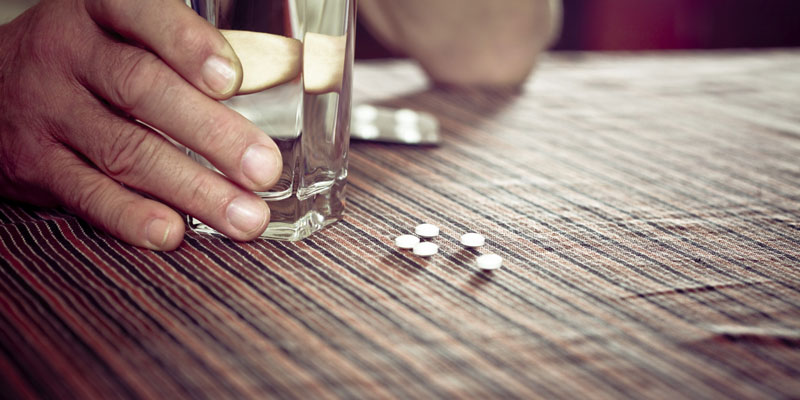
In a recent survey, the Center for Disease Control and Prevention (CDC) found that prescription pill abuse and overdose is more common now than every before. With this rapid increase in pill abuse comes certain myths and misconceptions about taking prescription drugs. When used properly as prescribed by a doctor, prescription pills can be a very useful tool to help patients overcome a variety of diseases, disorders and ailments. Follow doctors orders and educate yourself about the dangers of misusing and abusing prescription pills.
6 Common Misconceptions about Taking Prescription Drugs
1. If I require a higher dosage of my prescription medicine, I must be dependent on them.
One of the major concerns of using prescription pill is needing more and more of a drug to produce that same feeling. But just because you’re feeling the effects of a prescription drug weakening a bit, that doesn’t mean you’ve become dependent on it. When we take medication, our bodies can become tolerant to it and require a bit more to feel the effects of the pill. Your pain symptoms may truthfully call for a greater dosage – but you don’t have to psych yourself out if that happens and think that you physically or emotionally dependent on prescription pills.
2. Everyone becomes dependent on painkillers if they’re on them long enough.
In reality, most people who take prescription painkillers take them as they are intended and never develop a pill dependence. Unfortunately, some people do take them incorrectly and become dependent on them, but that is by far not the majority. When prescription drugs are used responsibly, they are perfectly fine and don’t pose a threat. Some warning signs for an issue developing may be things like a patient raising their dose without consulting with a doctor, or someone going to multiple doctors to get prescriptions without informing them of pre-existing prescriptions.
Keep in mind it can be extremely tricky to identify prescription pill dependence in the early stages. Chronic pain, which is hard for people on the outside to see, may require higher and higher doses – but that doesn’t mean the individual has developed a dependence. It’s really hard for people on the outside to gauge someone else’s pain, so what may look like addiction to an outsider, may actually just be someone experiencing a great deal of pain and needing the medication to better handle it.
3. Since most people don’t become dependent on painkillers, I have nothing to worry about and can use them as I please.
While substance dependence isn’t what happens in the majority of cases with people using painkillers, that doesn’t mean you can completely brush the possibility of it aside. Painkillers need to be used properly, regardless of the likeliness of physical and/or emotional dependence. And it’s important to remember that, of course, these medications definitely do have a potential for dependence – so sticking to the rules when taking these pills is essential.
The best thing to do is use them as prescribed and consult with your doctor if you feel the need for a higher dosage or if you have any concerns whatsoever. Doctors are there to help and give you the pros and cons of such treatment methods, as well as make the important decisions like needing a higher dosage or not.
4. It’s better to deal with the pain and not take painkillers than to risk of becoming dependent on them.
This is a big misconception among many people who fear developing a prescription pill dependence. If you undertreat pain, you can cause needless suffering that would otherwise be avoided. If you have pain, talk to your doctor about it – and if you fear becoming dependent on them, talk to your doctor about that too. Everyone has the right to address their pain and see what options exist. Avoiding something to alleviate pain is not a good idea.
Many people don’t realize that painkillers also act as a part of the treatment process for pain. They reduce inflammation and help with healing. So not only are you causing unnecessary pain but not taking those prescribed pills, but you may also slow down the entire process of getting healthy again.
But, at the same time, taking these drugs seriously is absolutely necessary. While you shouldn’t fear them if you absolutely need them, you also shouldn’t take them if you really don’t. After having my wisdom teeth removed back in high school, I absolutely needed the prescription painkillers for the first week or so due to immense pain. But after that, I knew my pain was not something that warranted those heavy duty drugs anymore.
5. The only thing that matters is pain relief.
Yes, pain relief is important and a main goal – but it isn’t the only one when it comes to painkillers. The main goal of prescription drugs, according to doctors, is something called ‘functional restoration.’ That means being autonomous, continuing daily living activities, and being able to have social relationships – all things that can be stunted from serious pain. Doctors explain that if functional restoration isn’t reached, they aren’t just going to keep raising the dosage – instead, they’re going to come up with a different plan.
6. I’m a strong-willed person. I won’t become dependent on prescription pills.
Prescription pill dependence isn’t about being strong or weak – the main risk factor is genetic predisposition. It could happen to anyone, and if it does, it doesn’t mean that person is weak.






